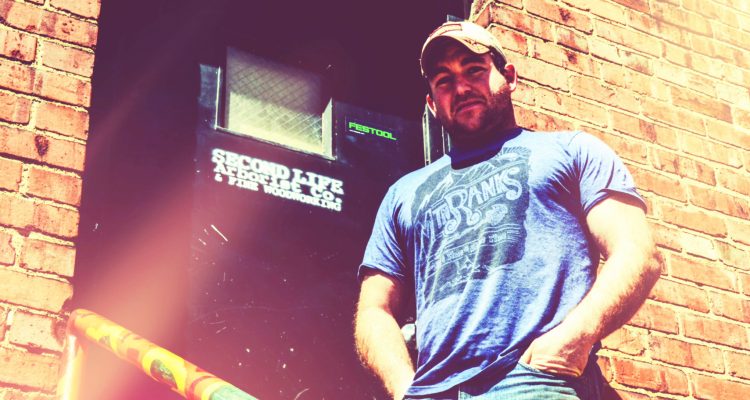Wheeling was the last place D.J. Shalvey expected to find himself.
He graduated from Wheeling Park High School in 2003 and from West Liberty University in 2008. Just two days following his college commencement, the avid rock climber packed up his belongings and his dog, Jake, into his Chevrolet Cheyenne truck, and off he went.
And he went west as far as he could. His first stop was Wyoming, and then Colorado, Washington, and the entire Pacific Coast before traveling to North Carolina to visit family.
“I just went climbing with my friends in Wyoming, Colorado, and all over, and then I came home because I had one tree job to do,” Shalvey recalled. “As soon as I was finished, I went straight back to Wyoming for a little while.
“That was my life at the time because I guess it needed to be,” he said. “I thought the answers I was searching for were out there and not here. There was no way those answers were here. At least that’s what I thought at the time.”

Shalvey then decided to enroll at West Virginia University to acquire a master’s in arboriculture. But once again, following his graduation, he fled the Mountain State for North Carolina, where he believed he would live happily ever after. He had a job, a serious girlfriend, and a down payment on a house. But one week, he lost it all. The job offer was rescinded, and the girlfriend returned to her native San Diego.
“That’s when the time arrived for me to get things together,” he admitted. “After sulking around a bit, I finally came back to Wheeling. It was Thanksgiving Eve 2012, and some of my friends were telling me all of these tree jobs I could do around here.
“That’s when I moved home before Christmas that year, and from there everything just seemed to fall into place. I was working, I had a lot of friends, and I could still make trips to go climbing when I wanted to. It was good, and then it got a lot better.”
He acquired his passion for working with wood at the age of 13 while he was watching a PBS show on woodworking. He waited for his mother to leave and began his first project.
“I saw that dude on an episode of Woodwright Shop on PBS, and he made a bread bowl with just a hatchet. He described exactly how to do it, and I remember thinking, ‘I can totally do that!’
“I went into the backyard where the edge of the yard was actually the woods, and I found a sugar maple tree, and I got the wood from it,” Shalvey explained. “I didn’t know at the time that the Sugar Maple was one of the hardest wood to work with, but I made that bowl, and ever since I’ve had this crazy obsession with making things out of wood.”
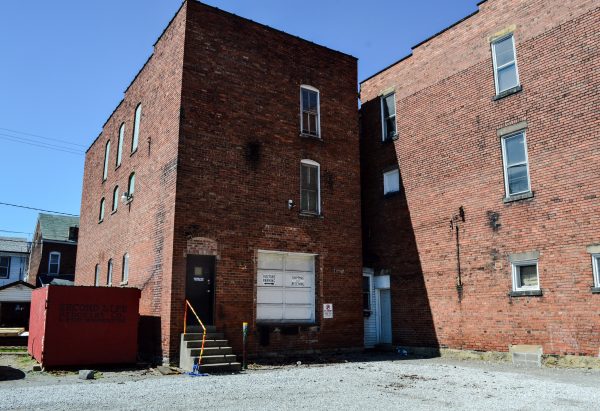
Once he replanted his roots in his hometown, Shalvey’s business was busy enough to cause him to have a panic attack one morning in his home-based woodshop.
“I was at my house in Springdale, and I had all this wood crammed into that little space I had there, and I started to panic. I had all these jobs to complete, but I needed a bigger shop. There was no way I was going to be able to do everything I needed to do without a bigger shop.
“I immediately started looking for a location, and I can remember praying,” he said. “And then the phone rings three days later, and it’s my friend Lloyd (Klages). We came to look at this building (in South Wheeling), and it was great. He bought the building, and we’ve been going at it ever since.”
Shalvey’s company, Second Life Arborist Co. & Fine Woodworking, has attracted customers from throughout the country. He attributes the interest to the exposure he’s had on social media networks. When he has finished a conference table, a night stand, or a fireplace mantel, Shalvey consistently has photographed his work and posted the photos to Instagram.
“Things like Instagram and Facebook really work for small businesses,” Shalvey testified. “It spreads much more than I ever realized. People are seeing photos on Instagram, and then apparently they are going to Facebook and doing a search. That’s how a gentleman from Annapolis found my contact information.
“He saw my work and told me that he wants me to make him a 10-foot dining room table, and that’s a project that will take at least two months if I average five or six hours a day on it,” he said. “It does take longer than a lot of people realize, but that’s because these projects start from the very beginning. It takes a lot of patience, but as long as you are, you’ll have a beautiful piece of furniture that will last a very, very long time.”
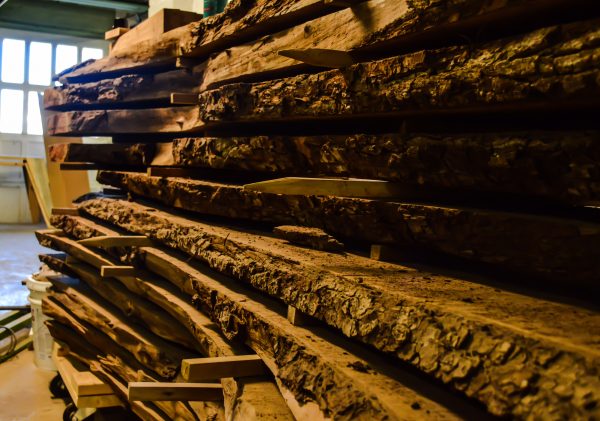
Shalvey’s pricing is not competitive with what is offered at most furniture stores these days, however, and the primary reason why his products are more expensive is craftsmanship versus mass production.
“I do want to make things that aren’t that expensive for the consumer, but I also have to justify the money that it takes for me to get the wood out of the trees. It’s a process that I don’t think a lot of people understand.
“I think most of us have become used to things being mass produced because that’s how we have been doing it in our country since the world wars. That’s when we started mass producing almost everything, and now our economy is so dependent on countries like China because those factories are able to make stuff that we find acceptable,” he continued. “But that’s not how I go about it. That’s not what I am into.”
What Shalvey is into, though, is the science, hard work, and the patience that are all ingredients to every piece he produces. In his shop he stores in every corner the materials he will need for future projects. His dehumidifying kiln is usually full of drying wooden planks, and the flattening table rests in the shop’s largest room awaiting the next piece.
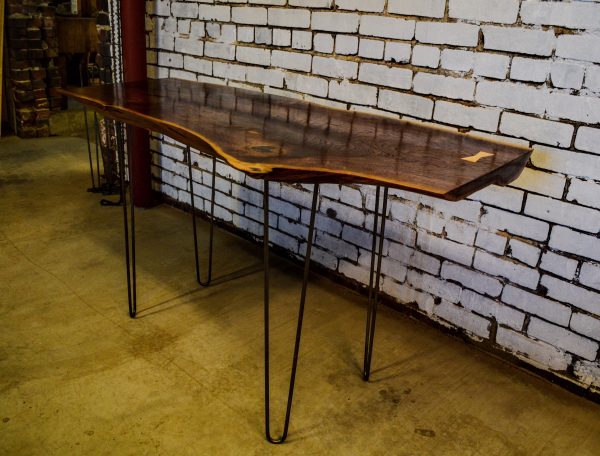
“Knowing those kinds of things really helps me produce the best products that are possible,” Shalvey said. “It’s a step-by-step process that involves a lot of patience and a lot of time in some cases. It all depends on the wood I’m working with.
“There are a lot of things that I could build that aren’t of this quality, but that doesn’t interest me. The kind of products that Second Life Arborist produces is what I want to do with the education I have accumulated,” he said. “There are, I guess, different levels of beauty, but I just don’t see anything as beautiful as a table that has been made the best way it could be made.”
Today Shalvey’s dream has expanded. His South Wheeling shop is a three-story structure, and he now refers to it as the, “Red Brick Maker Space.” He wishes to erect a new steel structure on the property to move in his woodshop, and then he wants to fill those three stories with production and education.
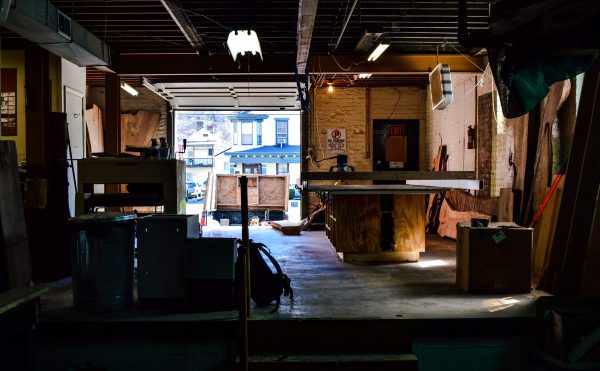
“I have spoken with Kevin Ayres from Brew Keepers and he has expressed an interest in moving his production to the first floor of the building, so that way I hope to construct a new building for my woodshop,” he explained. “And then what I would like to see on the second floor are people in the business of making things. Artist studios, stuff like that – that’s the point of the Red Brick Maker Space, and right now we have Brad Fritz committed, so he’ll do his woodworking up there, and he’ll also be teaching classes.
“And I would love to have an art studio or something like yoga up on the third floor,” he continued. “If we can get all this happening, here it would be a place where people could count on special events every Friday night, and it could become a new area for people to visit. I would like to see everything be powered by solar energy, and I would like for every business that locates here to also teach their craft to members of our community. That would make it all very interactive and I think we need more of that here.”
Shalvey’s vision also includes a changed economy in the Friendly City, one that welcomes new businesses no matter what they may entail. He believes the time has arrived for a true transformation.
“If we can get everything I’d love to see in South Wheeling, it could be the beginning of a new, reinvented area of Wheeling,” Shalvey said. “If we can change Wheeling to a collaborative environment instead of a competitive environment, then everybody wins because all you’ll do it helping each other.
“That’s what I would like to see here in Wheeling, and it’s something I truly believe can happen right now,” he said. “We have the chance to reinvent Wheeling, we really do, and I know I plan to do everything I can to make what I dream about come true.”
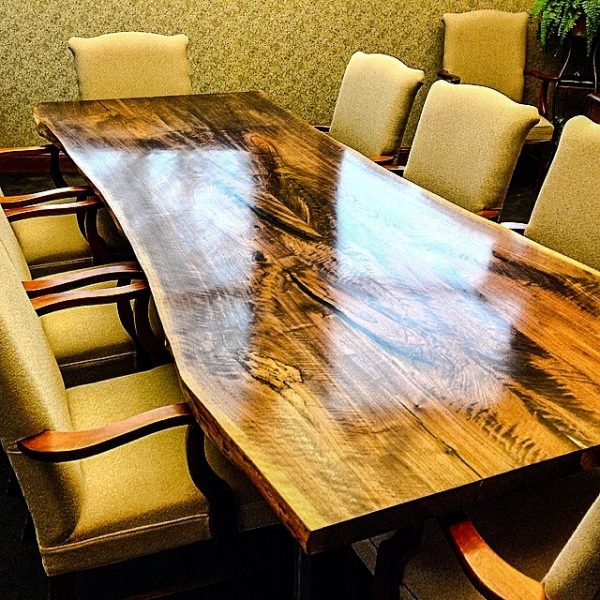
Shalvey smiles when he’s reminded of his journey and the thousands of miles between Wheeling and, well, Wheeling. He grew up hearing that leaving the Upper Ohio Valley was the only way to discover opportunity, a better life, and well-being. He scoffs at those claims today.
“I never, ever dreamed while I was growing up in Wheeling that I would be here and be happy about it,” Shalvey said. “But here I am, and I am actively recruiting my friends to come here, too. There’s a lot of opportunities here right now and not just in my field but in many fields.
“I think that’s one of the reasons why we are seeing so many people of all ages taking chances with new businesses and things like that,” he said. “Because of how the economy declined over the past 50 years, now everyone is open to anything because we want to see new things instead of the old things going away.
“If you look around this area, you couldn’t recreate what we have here anywhere in our country,” he insisted. “Right now is a golden opportunity to be a part of the reinvention of an old Rust Belt town. You cannot replicate that. Wheeling has a unique stance on the national stage, and I feel lucky that everything in my life led me to be here right now.”
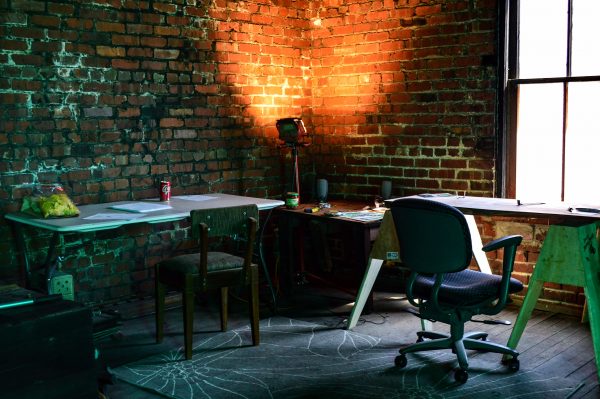
Photography by Steve Novotney


